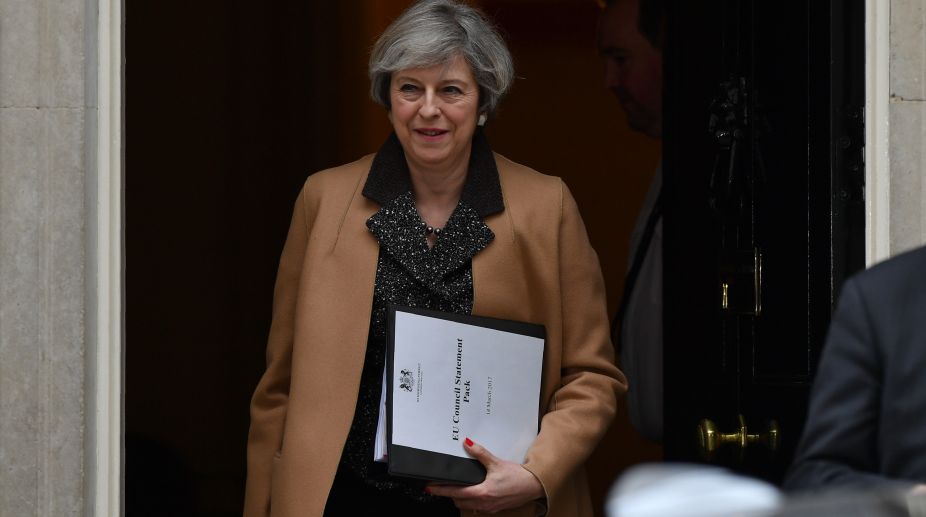Renewed protests against ‘Russian law’ in Georgia
Tens of thousands of people protested again in the Georgian capital Tbilisi against a planned law to control foreign influence.

Theresa May (PHOTO: AFP)
Theresa May has stunned Britain by calling a general election on 8 June, the second in two years and a year after the referendum on the European Union. Brexit has now turned out to be the benchmark of her success or otherwise as the Conservative Prime Minister of Britain. Her entry into 10 Downing Street was fortuitous in itself, and her tenure since last July has been rocked by a singular issue. It is pretty obvious that the decision to call a snap general election stems from her anxiety to secure a convincing parliamentary majority before the full consequences of Brexit become clear to voters.
The campaign between now and the first week of June and still more important the result will almost certainly have far-reaching consequences not just for the government’s policies over the next five years, but for Brexit, for the Labour party and for the union with Scotland too. Ms May’s call for another election is almost a renewal of the mandate post the referendum on 23 June last year. On Wednesday, she won the House of Commons approval for another general election with an overwhelming margin ~ 522 in favour and 13 against.
The legislative sanction for another election lends more power to her elbow. Over the past year, the process towards Brexit has lunged from one uncertainty to another, not least the resignation of Britain’s envoy to the EU and the conditions set by the Supreme Court, chiefly the concurrence of the Lords. Ergo, the renewed tryst with democracy on 8 June is essentially intended to be a renewal of the mandate on Brexit. Every vote for the Conservatives makes it harder “to stop me getting the job done”, she said. Every vote “will make me stronger” in the Brexit negotiations. The two-third majority empowers her to call an election within the Fixed Term Parliamentary Act.
Advertisement
For all the expressions of profound optimism, the sudden development in Britain has thrown up constitutional questions. The Prime Minister has called an election that the country does not need. Not that there has been a surge in the prospects of Labour or the LibDems since two summers ago when they were trounced by the Tories. Labour has clearly acquiesced in the decision, almost impervious to the Conservative strategy or to its potential impact.
Ignored amidst the nation’s obsessive concern with Brexit and the Tory handling of the negotiations, two profound constitutional issues have been overshadowed ~ the desirability of fixed-term Parliaments and of stopping Prime Ministers from calling what many regard as opportunist elections. From the referendum to a surprise election, Ms May has betrayed a touching faith in the people ~ “It is time to put our fate in the hands of the people and let the people decide.” They will once again in another seven weeks.
Advertisement